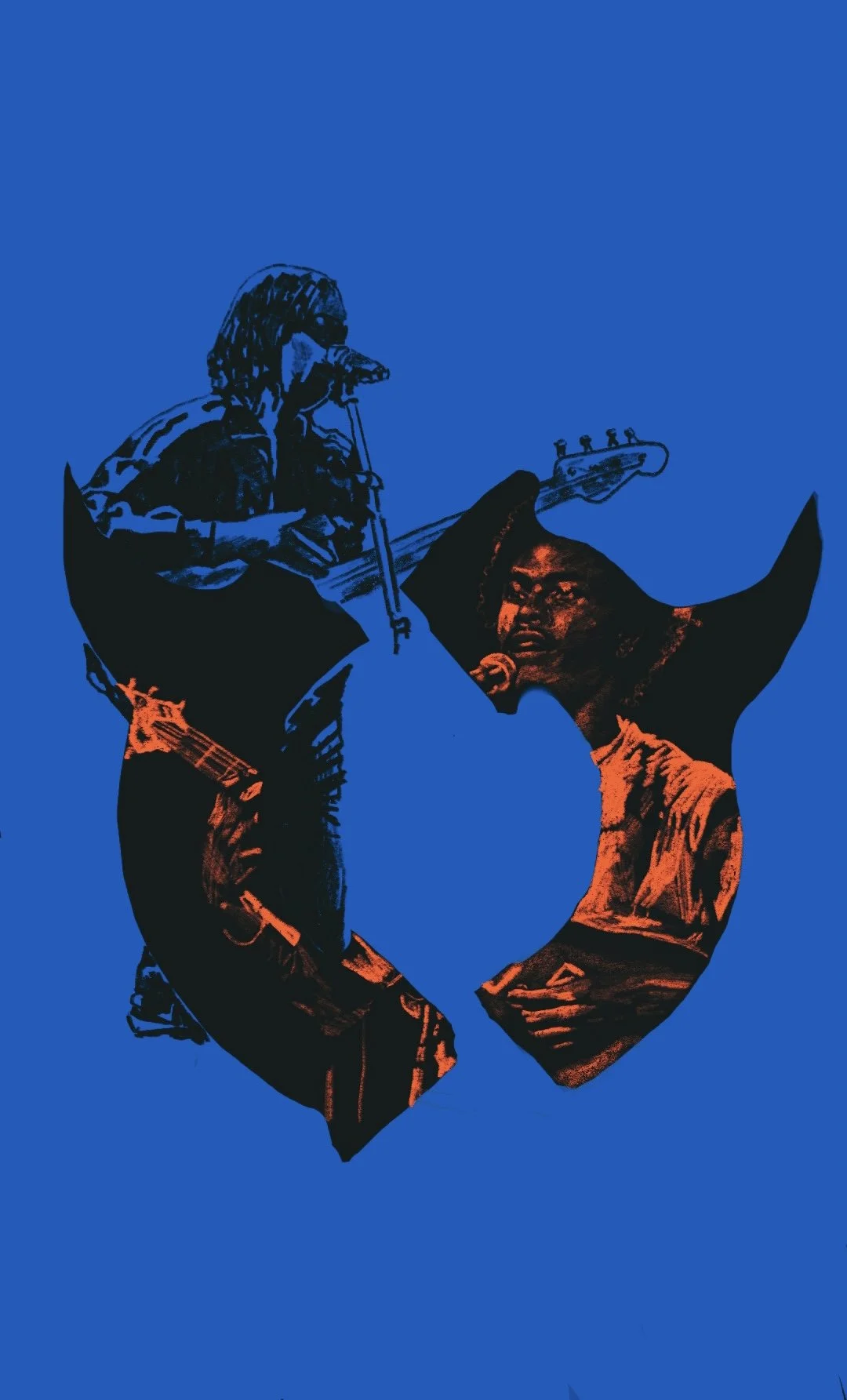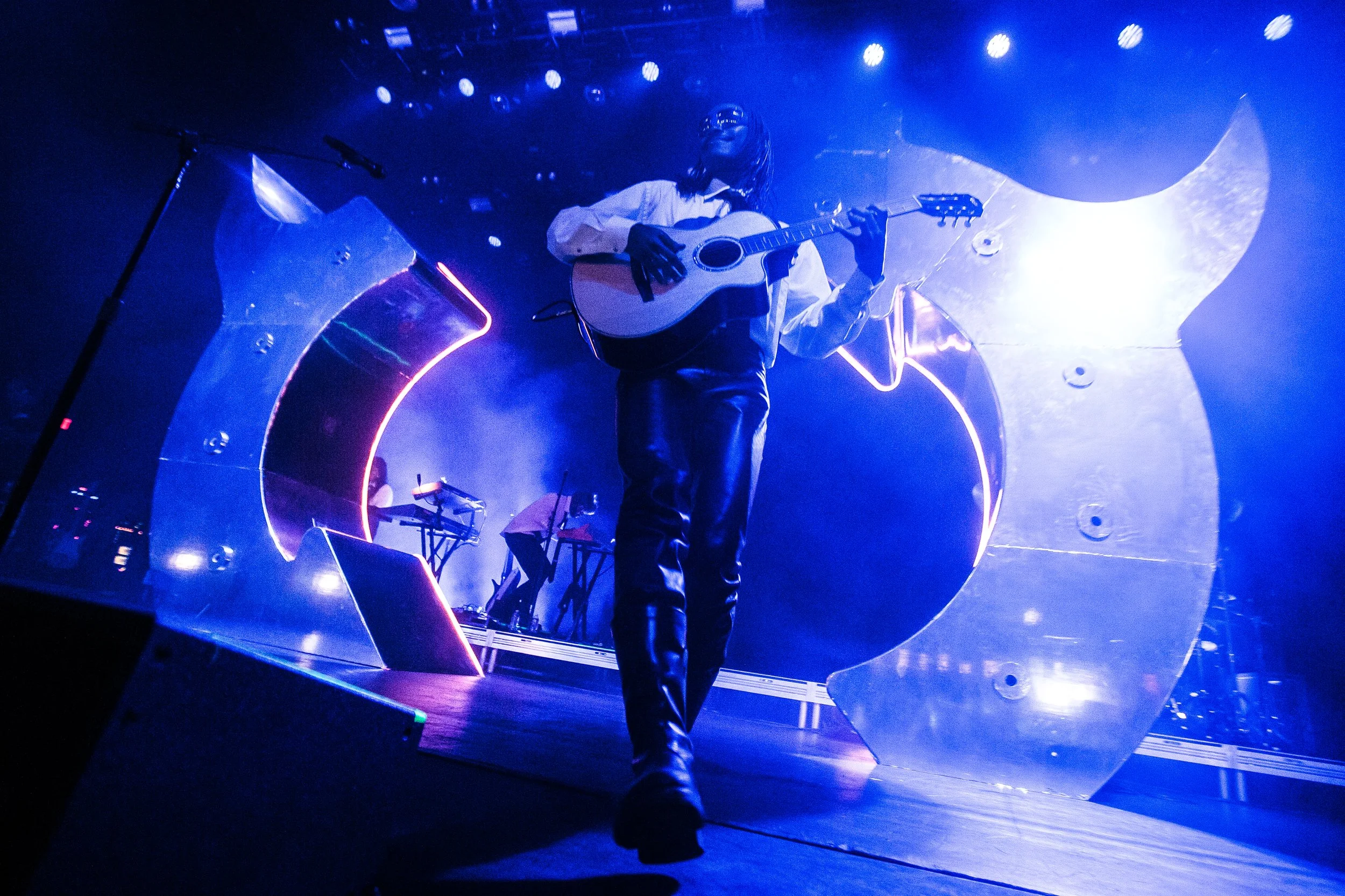Let’s Gatekeep!: A Case Study on Steve Lacy
I need to preface by stating that the process of gatekeeping, by definition, is inherently anti-music. It is against music culture, music standards, and wholly, should not be adopted into any musical practice. Like all things good, sharing is key in music; whether to expand your taste or someone else’s. Gatekeeping can be defined as the activity of controlling, and usually limiting, general access to something. In terms of music, that can be sheltering an artist, an album, or even a song. The changing landscape of the music industry, especially the fifteen seconds of social media fame that makes or breaks songs, and subsequently artists, needs to be analyzed. Shortly, I have never seen anything like this before. Sharing music, once an intimate process that was my go-to pick up line, is now warped - I will let you decide whether it is for better or for worse. With the aforementioned recent rise in music virality, a widespread conversation has now sparked concerning how the genuinely of fans can impact the health of a fanbase and overall culture around an artist. This piece focuses on Steve Lacy as a case study on gatekeeping music, given the recent situation from just this summer and a lack of genuiness from fans, subsequently denting the tour.
Steve Lacy is an American musician and producer, beginning his career as the guitarist for The Internet, a new wave R&B group; popular in the lo-fi hazy genres. He has not sprung from obscurity though, having already collaborated with Kendrick Lamar, Blood Orange, YG, J. Cole, Solange, Tyler the Creator, Odd Future, and Vampire Weekend before his ascent up the Billboard charts. Both fortunately and unfortunately, Lacy’s single from his newest album, Gemini Rights, titled Bad Habit became a hit via the star-making force, TikTok. With the undeniable traction that Lacy rightfully received, his “fanbase” grew as well, reveling in the wellspring of a shared feeling; we all have BAD habits. However, the issue with hits on TikTok is that they spark and die out, all within the fifteen second clip that raised the initial song to fame. Fast forward to his tour announcement, and tickets to his shows were in crazy demand. Due to the demand to price ratios that TicketMaster has newly adopted (wrongfully, I might add), the prices were through the roof. Needless to say, the crowd was made of people who could afford it, reminiscent of the TikTok thirst trappers. Explicitly stated by countless news sources, Lacy, and now myself, the crowd was terrible. Channeling their own “bad habits”, the concerts included instances of fans interrupting the sets, throwing things on stage. Most disappointingly, most fans seemed to know no other songs from Lacy’s discography, let alone the second verse of Bad Habit.
https://www.youtube.com/shorts/tpN_cwRFfrE
After hearing and seeing the evidence on TikTok, the platform that started it all, I couldn’t help but think about what would have happened, to both the tour and Lacy’s career, if gatekeeping was more acceptable. Again, the activity of controlling, and usually limiting, general access to something could have very well changed the outcomes of this issue. Although this definition differs from the “#gatekeep” definition akin to TikTok, which mainly focuses on the conservation of select individual’s tastes in music. To understand the weight of gatekeeping in terms of a case study, one must also understand how it manifests in a social context. Generally, gatekeepers are those that often undermine the intelligence or abilities of people seemingly interested in the same things they are; both highlighted in superiority and individuality complexes. It manifests in a sense of distaste for others appreciating works that they hold in high regard. Looking at it this way, it seems like people gatekeep to make sure those consuming the same art are worthy to do so. This is where the psychology of acquisition and proprietorship comes in; the human desire to own something all to themselves. In fact, to exert this control over something isn’t just human nature, it’s also beneficial for one’s well-being. Now that personalities are broadcasted and asking to be adopted, it does seem hard to find things that are genuinely yours, which makes gatekeeping seem rather sweet. Additionally, the all too common conflation of popular with basic makes people want to further protect their tastes and tarnish the credibilities of others in the process, in hopes to be a sort of innovator or trendsetter themselves. Less sweet, but still valid.
“Music did not take the road less travelled by, it took the path that has never been touched before. This is uncharted territory, and I just do not know what to do.”
So is it ever justified? Stunting the growth of both the art and the artist? In the case of Steve Lacy, it seems like gatekeeping could have saved the tour, saved the crowd’s connection, and a lot of Lacy’s reputation. Lacy did respond to the obstacles (literally) thrown his way; smashing a fan’s camera that was hurled on stage, and shutting down a fan’s song request rather hastily. However, to be known as the “Bad Habit singer”, when you have a fruitful career both behind and in front of you is simply put, annoying. Is gatekeeping in music an older notion now? If everything about sharing music has changed, would that not make it acceptable to be stingy too? The lack of a supportive fanbase when they should have been present, could be fuel to the fire; not to mention the high prices also being a reason to reintroduce gatekeeping to the mix.
How do we navigate these new relationships? It feels like music is changing, as a practice, right in front of us. The music, the artist, and the online all diverge in such a way that does away with traditional music practices altogether. Should we introduce the untraditional, or the infamous then? Gatekeeping could be a way to keep music genuine. To keep art limited to those who will appreciate it, not throw cameras at it. In this new dimension that we are all seeping into, the ethicality of music culture becomes blurred. I appreciate the act of sharing just as much as the next connoisseur, but do we have a duty to protect our fanbases from posers? Can posers even exist when we are talking about music? Do we even share music now? We send each other TikToks and Reels with 15 seconds of a song, sped up, nonetheless, and expect to create authentic listeners. Music did not take the road less travelled by, it took the path that has never been touched before. This is uncharted territory, and I just do not know what to do.
Header by: Valerie Letts


